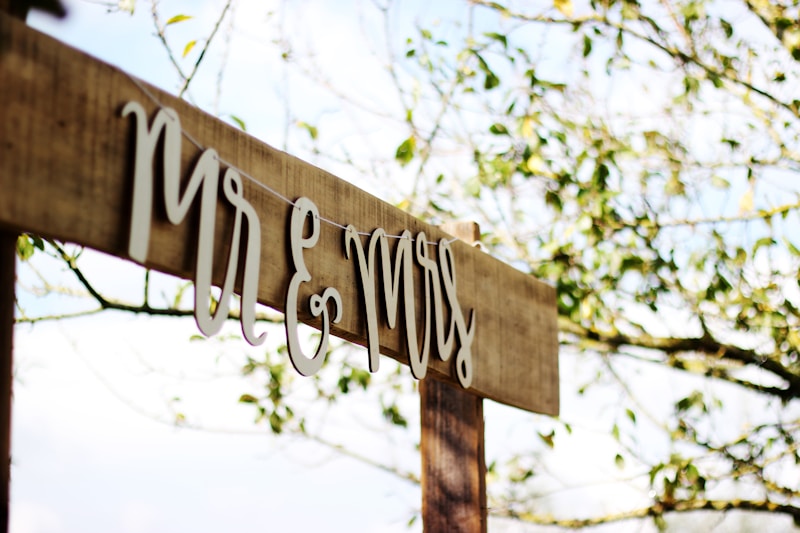Essential Retirement Planning and Tax Options for Bridal Shop Owners
IntroductionStarting a bridal shop is a dream for many entrepreneurs, but as you establish and grow your business, it's vital to consider your future beyond the moment of sale. Retirement planning can often be overlooked amidst the hustle and bustle of running a business, especially in a niche market like bridal wear. Understanding tax options available specifically for bridal shop owners can significantly impact your financial future. This article aims to guide you through effective retirement planning and tax strategies tailored for bridal shop proprietors.The Importance of Retirement PlanningRetirement planning is not just about saving money; it encompasses a comprehensive strategy that considers your lifestyle, income sources, and potential expenses during retirement. For bridal shop owners, a solid retirement plan is essential because: Income Stability: Ensures that you have reliable income post-retirement. Healthcare Costs: Addresses potential medical expenses that can arise with age. Business Exit Strategy: Provides a framework for when you're ready to retire or sell your business.Understanding Your Tax LandscapeAs a bridal shop owner, it’s crucial to comprehend the tax implications that come with your business operations and your retirement savings. Many shop owners neglect certain deductions and opportunities that can significantly affect their financial planning.Tax Responsibilities for Bridal Shop OwnersBridal shop owners are subject to various taxes, which may ...
Essential Guide to Handling Inventory Taxes for Your Bridal Business
Understanding Inventory Taxes in the Bridal IndustryRunning a bridal business can be an exhilarating but challenging endeavor. One critical aspect that often gets overlooked is handling inventory taxes effectively. This is especially pertinent given the unique nature of bridal goods – they are often high-value items, and understanding how to manage taxes related to inventory is vital for maintaining profitability. What Are Inventory Taxes?Inventory taxes refer to the taxes levied on the value of unsold goods that a business possesses during a given period. For bridal businesses, these might include wedding dresses, accessories, and décor items. Understanding how these taxes work is crucial for financial planning and compliance.The Importance of Accurate Inventory ValuationTo effectively manage inventory taxes, it is essential to have an accurate valuation of your stock. This involves: Adequate Record Keeping: Maintain detailed records of all inventory purchases, sales, receipts, and costs. Consistent Valuation Methods: Choose a valuation method such as FIFO (First In, First Out) or LIFO (Last In, First Out) to assess the value of your inventory consistently. Valuation Method Description FIFO Assumes that the oldest inventory items are sold first, which could lead to lower taxes during periods of inflation. LIFO Assumes that the newest inventory items are sold first, potentially reducing tax liability in times of rising prices.Key Considerations for Bri...
Unlocking Financial Incentives for Eco-Friendly Bridal Shops: A Guide to Sustainable Success
As more couples seek sustainable options for their weddings, eco-friendly bridal shops are gaining popularity. Not only do they provide environmentally responsible choices, but they also benefit from various financial incentives designed to support green businesses. In this article, we will explore the financial incentives available for eco-friendly bridal shops, how to access them, and tips for maximizing their potential. Let's delve into the world of eco-friendly businesses and discover how these incentives can lead to sustainable success.Understanding Financial Incentives for Eco-Friendly BusinessesFinancial incentives come in various forms and can significantly impact the growth of eco-friendly bridal shops. These incentives can be categorized into several main types:Type of IncentiveDescriptionGrantsFunding provided to set up or expand eco-friendly business operationsTax CreditsReductions in tax liabilities to encourage green practicesSubsidiesFinancial support from the government to offset costs of sustainable materialsLow-Interest LoansAffordable financing options to fund eco-projectsRebatesCash-back opportunities for purchasing sustainable goodsEach of these incentives serves to encourage and support eco-friendly businesses, promoting sustainable practices while enhancing profitability.Types of Financial Incentives for Eco-Friendly Bridal ShopsLet’s take a closer look at the most significant financial incentives available for eco-friendly bridal shops:1. Grants for Gr...
Maximizing Tax Benefits: Charitable Donations Made by Bridal Boutiques
In today’s world, bridal boutiques play an essential role not only in helping brides find their dream attire but also in contributing positively to society. One of the often-overshadowed benefits of operating a bridal boutique is the potential for tax deductions associated with charitable donations. This article delves into the tax benefits of charitable donations made by bridal boutiques, elucidating how boutique owners can maximize their contributions while reaping financial rewards.Understanding Charitable DonationsCharitable donations refer to gifts of money or goods to organizations that qualify as charitable under the tax code. For bridal boutiques, this can include donating dresses, accessories, and other products to various nonprofit entities. Not only does this act promote goodwill, but it also provides an avenue for tax deductions that can significantly benefit the business.Types of Charitable DonationsBridal boutiques can engage in various types of charitable donations, which can be categorized into two main types:Type of DonationDescriptionMonetary DonationsDirect financial contributions to eligible charities, providing a cash benefit to the organization.Non-Monetary DonationsPhysical products such as wedding dresses, accessories, or services offered to charitable organizations.The Tax Code and Charitable ContributionsThe Internal Revenue Service (IRS) allows individuals and businesses to deduct contributions made to qualified charitable organizations. Bridal bout...
Maximizing Your Savings: Cost Allocation and Tax Deductions for Event Rentals
In the realm of event planning, understanding the nuances of cost allocation and the potential for tax deductions can significantly impact your bottom line. Whether you are organizing a corporate event, wedding, or a local fundraiser, knowing how to manage your expenses effectively is crucial. In this comprehensive guide, we’ll explore the intricacies of cost allocation and how you can leverage tax deductions related to event rentals. Understanding Cost Allocation Cost allocation refers to the process of identifying and assigning expenses to various aspects of a project or organization. For event rentals, this means categorizing costs such as venue rental, catering, decor, and equipment into distinct segments. Proper cost allocation not only provides clarity on where your funds are going but also plays a vital role in maximizing tax deductions. Why is Cost Allocation Important? Cost allocation is essential for several reasons: Financial Clarity: By breaking down costs, you can make more informed financial decisions. Budgeting: Understanding where your money is spent helps in establishing future budgets. Tax Reporting: Clear allocation of expenses can help in identifying which costs are tax-deductible. Common Event Rental Expenses When planning an event, it’s crucial to identify all potential rental expenses. Here’s a table summarizing common event rental costs: Expense TypeDescription Venue RentalFees associated with renting the event space. CateringCosts ...
Bridal Shop Sales Forecasting and the Impact of Tax Effects
Understanding Bridal Shop Sales ForecastingIn the dynamic world of bridal shops, sales forecasting is crucial for effective business management and planning. With the wedding industry booming, understanding sales patterns, customer behavior, and seasonal impacts can greatly enhance profitability and operational efficiency. This article will explore the essentials of sales forecasting for bridal shops, the impact of tax regulations, and strategies for optimizing both.The Importance of Sales Forecasting in Bridal ShopsSales forecasting involves predicting future sales based on historical data, market trends, and various influencing factors. For bridal shops, accurate forecasting is vital as it helps in: Inventory Management: Knowing projected sales allows shops to stock the right amount of inventory, thus minimizing excess or shortage. Financial Planning: Forecasts aid in budget preparation and securing necessary funding. Marketing Strategies: Understanding peak sales seasons helps in strategically planning marketing campaigns. Resource Allocation: Better forecasts mean more effective use of staff and resources during busy times.Factors Influencing Bridal Shop Sales ForecastingSeveral factors can influence sales forecasting in bridal shops, including: Factor Description Seasonality Weddings are often seasonal, affecting sales predictability. Trends Bridal fashion trends can rapidly affect customer preferences and purchasing decisions. Econ...
Understanding Tax Brackets for Bridal Shop Income: A Comprehensive Guide
Owning and operating a bridal shop can be a rewarding endeavor, both personally and financially. However, as with any business, understanding the financial implications—particularly taxes—can significantly impact your profitability. One key component is understanding tax brackets for bridal shop income. This article will delve deep into how tax brackets work, what you need to know about your bridal shop income, the implications for your specific region, and other essential factors that can help you manage your taxes effectively. What Are Tax Brackets? Tax brackets are ranges of income that are taxed at different rates. In simpler terms, as your income increases, the rate at which you are taxed also increases. Tax brackets are usually progressive, meaning that different portions of your income are taxed at different rates. For bridal shop owners, understanding these brackets is essential to determine how much of your income will ultimately go to taxes. How Tax Brackets Work Let’s break down how tax brackets function. For example, in the United States for the tax year 2023, the tax brackets are set as follows: Tax RateIncome Range 10%$0 - $10,275 12%$10,276 - $41,775 22%$41,776 - $89,075 24%$89,076 - $170,050 32%$170,051 - $215,950 35%$215,951 - $539,900 37%$539,901 and above Each portion of your income is taxed at its respective rate. Therefore, it is crucial to keep track of your income level as a bridal shop owner so that you can estimate your tax liabilit...
Maximizing Profits: Leveraging Tax-Advantaged Accounts for Bridal Business Expenses
Understanding Tax-Advantaged Accounts in Your Bridal BusinessAs a bridal business owner, managing your expenses effectively is key to maintaining your profitability. One powerful strategy to consider is leveraging tax-advantaged accounts for bridal business expenses. These financial instruments can help you save on taxes, thereby boosting your bottom line. In this article, we will explore how you can use these accounts effectively, the types available, and practical tips to maximize your benefits.What Are Tax-Advantaged Accounts?Tax-advantaged accounts are financial accounts that provide specific tax benefits, either by allowing contributions to be tax-deductible or by offering tax-free growth on earnings. These accounts include options such as Health Savings Accounts (HSAs), Flexible Spending Accounts (FSAs), and even retirement accounts like 401(k)s and IRAs. For bridal business owners, understanding and utilizing these accounts can lead to significant savings.Why Are They Important for Bridal Businesses?Bridal businesses often incur substantial costs, from inventory and marketing to operational expenses. By utilizing tax-advantaged accounts, you can switch your focus from mere spending to strategic financial management. Here are some advantages: Tax Savings: Reducing your taxable income can lead to lower overall tax bills. Cash Flow Management: These accounts can help you set aside cash for specific expenses, providing better financial control. Investment Growth: ...
Essential Guide to Audit Preparation for Bridal Shop Finances
Understanding the Importance of Financial Audits for Bridal ShopsAs a bridal shop owner, managing finances is crucial for the sustainability and growth of your business. Proper financial management not only reflects the health of your business but also prepares you for necessary audits. This guide focuses on audit preparation for bridal shop finances, helping you navigate through the complexities of financial operations with confidence.Why Are Audits Important for Bridal Shops?Audits play a vital role in ensuring the financial integrity of your business. They provide a thorough examination of your financial records, ensuring that your financial reports present a true and fair view of the business. This is particularly essential in industries like bridal fashion, where large transactions and seasonal sales can complicate financial tracking.Benefits of Preparing for an Audit Improved Financial Accuracy: Regular audits encourage you to keep accurate records, minimizing errors related to sales, returns, and inventory management. Enhances Financial Decision-Making: With accurate and reliable financial information, you are better positioned to make strategic decisions for your bridal shop. Builds Trust with Stakeholders: Transparency in finances builds trust with suppliers, lenders, and customers, enhancing your business reputation.Steps for Audit Preparation in Your Bridal ShopTo ensure a smooth audit process, consider following these steps:1. Organize Financial RecordsGa...
Understanding the Tax Ramifications of Bridal Shop Expansions
Exploring Tax Considerations for Bridal Shop OwnersAs a bridal shop owner, the journey of expanding your business can be both exhilarating and daunting. While many entrepreneurs focus on the operational and marketing aspects of their growth, it is crucial not to overlook the tax ramifications of bridal shop expansions. Navigating these complexities can mean the difference between a successful venture and one that incurs unnecessary tax liabilities.What Are Bridal Shop Expansions?Bridal shop expansions can take various forms, including moving to a larger location, adding new product lines, or expanding into online sales. Understanding the tax implications of these changes can help you maximize your investment and ensure compliance with local and federal tax laws.Key Tax ConsiderationsWhen expanding your bridal shop, here are some essential tax ramifications to consider:Tax ImplicationDescriptionSales TaxMany states require bridal shops to collect sales tax on dresses and related merchandise. Be aware of the rates and exemptions to this tax.Business Income TaxIncreased revenue will affect your overall tax burden. Maintain accurate records of your new income streams.Property TaxMoving to a larger location may increase your property taxes. Know the assessed value and your local rates.Deductible ExpensesExpenses related to your expansion such as renovations, new inventory, and marketing can often be deducted from your taxable income.Payroll TaxesHiring additional staff may increas...
Minimizing Self-Employment Taxes for Bridal Owners: A Comprehensive Guide
As a bridal shop owner, navigating the intricate world of taxes can be overwhelming, especially when it comes to self-employment taxes. It's essential to understand how to minimize these taxes while optimizing your business income. This guide will cover effective strategies, important considerations, and expert tips for bridal owners aiming to lessen their tax burdens legally.Understanding Self-Employment TaxesBefore diving into strategies for minimizing self-employment taxes, it's crucial to grasp what these taxes entail. In the United States, self-employment tax consists of Social Security and Medicare taxes for individuals who work for themselves. This tax is approximately 15.3% of your net earnings, comprising: 12.4% for Social Security (up to a certain income limit) 2.9% for Medicare (with an additional 0.9% for high earners)How Self-Employment Taxes Affect Bridal OwnersBridal shop owners, like any self-employed individuals, are responsible for reporting their income and paying self-employment taxes on their earnings. Since bridal businesses can vary in income seasonally, understanding the fluctuations and how they impact taxes is essential.Strategies for Minimizing Self-Employment TaxesNow that we understand the basics of self-employment taxes, here are several strategies for bridal shop owners to minimize their tax liability:1. Structure Your Business WiselyChoosing the right business entity can profoundly affect your self-employment taxes. Consider forming an S Corp...
Year-Round Tax Planning for Bridal Entrepreneurs: A Comprehensive Guide
Starting and running a bridal business can be incredibly fulfilling, but it comes with its own set of challenges, especially when it comes to taxes. Year-round tax planning for bridal entrepreneurs is not only crucial for maintaining compliance but also for maximizing profitability. In this article, we will explore effective tax strategies, common pitfalls, and the importance of staying organized and informed. Let’s dive in!The Importance of Year-Round Tax PlanningMany bridal entrepreneurs tend to wait until the end of the fiscal year to prepare their taxes. However, year-round tax planning is essential for managing cash flow and avoiding surprises. By staying proactive, you can take advantage of potential deductions and credits while also preparing for estimated tax payments.Key Benefits:Increased Profitability: Understanding your tax liabilities helps you make better financial decisions.Cash Flow Management: By planning ahead, you can better manage your cash flow and allocate funds appropriately for tax payments.Compliance: Staying informed about tax laws ensures you remain compliant and avoid penalties.Essential Tax Deductions for Bridal EntrepreneursAs a bridal entrepreneur, it’s vital to know which expenses can be deducted from your taxable income. This can significantly reduce your tax burden, allowing you to invest in your business further. Here is a table summarizing some common tax deductions:Deduction CategoryDescriptionEquipment and SuppliesExpenses for purchasing ...
Understanding Tax Deductions for Bridal Business Expenses: A Comprehensive Guide
IntroductionRunning a bridal business can be both rewarding and challenging. As a business owner in this niche, it's crucial to maximize your profits while minimizing your expenses. One of the most effective ways to do this is by understanding tax deductions for bridal business expenses. In this article, we will delve deep into the various deductions available, how to qualify for them, and tips for keeping records.What are Tax Deductions?Tax deductions reduce your taxable income, which in turn lowers the amount of tax you owe. For bridal business owners, knowing which expenses are deductible can significantly impact your bottom line. Generally, any expense that is ordinary and necessary for your business operations is potentially deductible. This includes costs related to supplies, advertising, and even certain business-related travel expenses.Common Tax Deductions for Bridal Business ExpensesHere is a breakdown of some common tax deductions that bridal business owners may qualify for:Expense TypeDescriptionInventoryCosts for bridal gowns, accessories, and decorations.SuppliesItems needed for daily operations, such as tools and cleaning supplies.Advertising and MarketingExpenses incurred for promoting your business, including online ads and print materials.Rent and UtilitiesCosts for leasing a retail space and related utilities.Vehicle ExpensesExpenses related to business travel, including mileage and fuel.Professional ServicesFees paid to consultants, accountants, and other ...
Understanding Sales Tax in the Wedding Industry: A Comprehensive Guide
IntroductionWhen planning a wedding, couples often focus on elements such as the venue, catering, and attire, but one critical aspect that can easily be overlooked is sales tax. Understanding sales tax in the wedding industry is essential for couples, vendors, and planners alike. This article will explore the intricacies of sales tax, its implications for various wedding-related services, and provide practical tips for navigating this often-complex financial obligation.What is Sales Tax?Sales tax is a consumption tax imposed by the government on the sale of goods and services. The rate varies by state and locality, and it is typically calculated as a percentage of the purchase price. In the wedding industry, sales tax can apply to a wide range of services and products, including venue rentals, catering, floral arrangements, and more.Why is Sales Tax Important for Weddings?Understanding sales tax in the wedding industry is crucial for several reasons: Budgeting: Couples need to know the total cost of their wedding, including sales tax, to avoid surprises that could disrupt their financial plans. Compliance: Vendors must comply with state and local tax laws to avoid penalties and maintain their business’s reputation. Transparency: Clear communication about sales tax can enhance trust between couples and vendors.Sales Tax and Wedding VendorsDifferent vendors charge sales tax in various ways. Here’s a breakdown of how different services in the wedding industry are affect...
Essential Financial Planning for Bridal Shop Events: A Comprehensive Guide
As the wedding industry continues to flourish, bridal shop owners are constantly seeking ways to maximize their resources for successful events. Financial planning for bridal shop events is a crucial factor that can determine the overall success and profitability of such endeavors. In this article, we will explore essential strategies for financial planning, addressing key questions and considerations while also highlighting the importance of budgeting, investor relations, and event management.Understanding the Importance of Financial PlanningFinancial planning for bridal shop events is not merely about budgeting; it encompasses a holistic approach to managing resources, forecasting expenses, and optimizing profit margins. Well-thought-out financial planning can lead to better decision-making, improved cash flow management, and ultimately, successful events that resonate with brides and grooms. Below is a quick summary of the pivotal aspects of financial planning for bridal shop events:AspectDescriptionBudgetingSetting a clear budget to oversee expenses and revenues.ForecastingPredicting costs based on historical data and market trends.Cash Flow ManagementEnsuring liquidity for smooth operations during events.Marketing CostsAllocating funds for effective promotional strategies.Supplier RelationsManaging relationships with vendors and suppliers to negotiate better deals.Setting Up Your BudgetCreating a detailed budget is the foundation of effective financial planning. Start by...
Maximizing Tax Credits for Your Bridal Shop: A Comprehensive Guide
Running a bridal shop involves both excitement and the practical challenges of managing a business. While you focus on creating the perfect experience for brides, it's crucial not to overlook the financial aspects, particularly tax credits. This article provides insights on how to maximize your bridal shop's tax credits, ensuring you keep more money in your business and take full advantage of the available benefits.Understanding Tax Credits for Bridal ShopsTax credits can significantly reduce the amount of tax you owe, translating into substantial savings for your bridal shop. Let's explore the most relevant tax credits available to bridal shop owners:Tax CreditDescriptionEmployee Retention CreditAimed at incentivizing businesses to keep employees on payroll, even during challenging times.Small Business Health Care Tax CreditSupports small businesses providing health insurance to their employees.Work Opportunity Tax CreditEncourages hiring individuals from specific target groups facing barriers to employment.Section 179 DeductionAllows businesses to deduct the full purchase price of qualifying equipment and software.How to Identify Available Tax CreditsIdentifying the tax credits applicable to your bridal shop can seem daunting. However, a systematic approach can simplify the process:Consult a Tax Professional: They can provide personalized advice based on your specific business circumstances.Research Local and State Credits: Many locales offer additional tax benefits for sm...
Essential Tax Strategies for Seasonal Wedding Businesses
Running a seasonal wedding business can be both exhilarating and challenging. While you get to enjoy the magic of love during peak seasons, you must also navigate the complexities of taxes. In this article, we’ll explore robust tax strategies for seasonal wedding businesses to ensure compliance, maximize profits, and reduce tax liabilities. We’ll break down these strategies, provide useful tips, and help you avoid common pitfalls. Understanding the Unique Tax Landscape for Seasonal Businesses Seasonal businesses, particularly in the wedding industry, experience fluctuating income throughout the year. While some months may yield a significant inflow of revenue, others may result in little to no income. This unique aspect poses specific challenges related to taxation. It's crucial for business owners to understand how their tax obligations can change based on their operational structure and income patterns. Key Tax Considerations 1. Business Structure: The type of business structure you choose—sole proprietorship, partnership, LLC, or corporation—impacts your tax rates and liabilities. Consider consulting a tax professional to determine the most tax-efficient structure for your seasonal business. 2. Record Keeping: Diligent record-keeping is vital. Ensure you accurately track income and expenses throughout the year. Use accounting software or hire a bookkeeper to simplify the process. 3. Seasonal Inventory: Weddings often require specific inventory, such as decor items ...
Common Tax Mistakes Made by Bridal Shop Owners: Avoiding Costly Pitfalls
Understanding the Tax Landscape for Bridal Shop OwnersRunning a bridal shop can be a passion-driven venture, but it also comes with its unique set of challenges, especially when it comes to taxes. Many bridal shop owners find themselves making significant tax mistakes that can lead to financial repercussions. In this article, we will explore the common tax errors made by bridal shop owners and provide guidance on how to avoid them.1. Misclassifying Employees vs. Independent ContractorsOne prevalent mistake bridal shop owners make is misunderstanding the classification of workers. It’s tempting to label employees as independent contractors for financial relief, but the IRS has specific regulations governing these classifications. Misclassification can lead to audits, back taxes, and penalties.Tip: Consult a tax professional to understand the differences and ensure compliance.2. Neglecting to Track Business ExpensesBridal shop owners often overlook the importance of diligently tracking business expenses. It’s easy to get caught up in day-to-day operations and forget to keep records of expenditures. Failing to do so can result in missing deductions when tax season arrives.Common Deductible Business ExpensesExamplesInventory PurchasesBridal dresses, accessoriesOperating ExpensesRent, utilities, marketingProfessional ServicesAccountant fees, legal adviceEmployee WagesSalary, benefitsTip: Use accounting software to easily track and categorize all expenses throughout the year.3. Ign...
Establishing a Tax-Friendly Business Entity for Bridal Shops: A Comprehensive Guide
In today's competitive market, bridal shops face numerous challenges, from managing inventory to creating exceptional shopping experiences for brides-to-be. However, establishing a tax-friendly business entity can significantly ease some of these burdens. This article provides an in-depth guide on how to create a tax-efficient structure for bridal shops, covering essentials such as business entity types, tax benefits, and strategic planning. Whether you are a new entrepreneur or an established business owner looking to optimize your operations, this guide is tailored to help you navigate the complexities of taxation in the bridal industry.Understanding Business Entity TypesWhen starting a bridal shop, one of the vital decisions you'll make is choosing a business entity. Different structures come with unique tax implications, legal responsibilities, and other operational considerations.Business Entity TypeDescriptionTax ImplicationsSole ProprietorshipA business owned and operated by a single individual.Taxed on personal income; no separate tax return.PartnershipA business owned by two or more individuals.Pass-through taxation; partners report income on personal returns.Limited Liability Company (LLC)A hybrid structure offering personal liability protection and tax flexibility.Can choose to be taxed as a sole proprietorship, partnership, or corporation.Corporation (C Corp and S Corp)A legal entity separate from its owners, can be taxed as a C Corp or S Corp.C Corps face double ...
The Impact of Tax Laws on Bridal Shop Profitability: What You Need to Know
When examining the intricate world of wedding planning and bridal shops, understanding the impact of tax laws on bridal shop profitability is crucial. This article delves into the various aspects of taxation that directly affect bridal shops, helping owners navigate through financial challenges and ensure sustainable growth.Understanding Tax Laws and Their Importance Tax laws play a significant role in every industry, and the bridal shop business is no exception. From sales tax to income tax, each regulation can influence the overall profitability of a shop. In the United States, bridal shops must consider federal, state, and sometimes even local tax codes. Bridal shop owners should stay informed about changes to tax laws as they can affect pricing strategies, inventory management, and profitability. Let’s break down the various tax elements crucial for bridal shops. Key Tax Considerations for Bridal Shops Tax Type Description Impact on Profitability Sales Tax Tax charged on retail sales of products. Directly affects pricing and customer purchasing decisions. Income Tax Tax on the overall profit of the business. Affects net income and reinvestment strategies. Payroll Tax Taxes that employers must withhold from employee wages. Can affect operating costs and labor budgeting. Property Tax Tax on the physical storefront and property owned. Impacts overhead expenses and profit margins. Sales Tax: A Major Factor in Profitability Sales t...



















